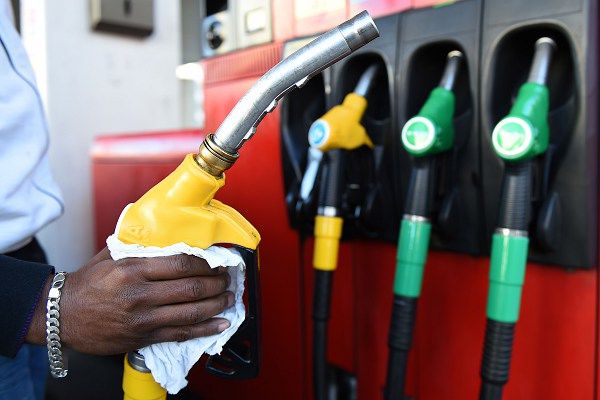Special topics
 The Association of Oil Marketing Companies (AOMCs) has refuted claims that 21 of its members collectively owe taxes and levies leading to the loss of about GH¢34.5 million in revenue to the state as contained in the Auditor-General’s Report for 2018.
The Association of Oil Marketing Companies (AOMCs) has refuted claims that 21 of its members collectively owe taxes and levies leading to the loss of about GH¢34.5 million in revenue to the state as contained in the Auditor-General’s Report for 2018.According to the AOMCs, the figure quoted could also not be accurate since most of the members named in the report had paid the required taxes on schedule, while others either had their indebtedness rescheduled or reconciled appropriately.
The Coordinator for the AOMCs, Mr Kwaku Agyeman-Duah, in a press statement in Accra yesterday, said it was unfair that the Auditor-General’s Report had created the impression that its members had failed to honour their tax obligations on schedule.
“It is pertinent to note that the nature of tax payments usually results in some form of arrears from month to month on Ghana Revenue Authority (GRA) books, as to when petroleum products were lifted and when a 21 plus four days payment window starts and ends.
“Again, the Electronic Record and Document Management Systems (ERDMS) makes it impossible for OMCs/LPGMCs owing taxes, no matter how little, to continue lifting petroleum products and, therefore, the report cannot be entirely correct,” the statement added.
Reaction
It was in reaction to the Auditor General’s revelation of the loss of revenue caused by the defaulting OMCs at a press conference held in Accra last Thursday.
However, Mr Agyeman Duah said the period cited by the Auditor-General was when the nation witnessed an unprecedented spate of illegal fuel smuggling which also resulted in delay or non-payment of taxes.
“The period under review (November 2016 – November 2017), witnessed unprecedented spate of the illegal fuel smuggling which culminated in the delay or non-payment of taxes, a result of low sales at retail outlets due to stock turnover from 14 days to 45 days on the average,” the co-ordinator stated.
He further explained that “it is noteworthy that we are obliged to pay the taxes whether products are sold or not, hence OMCs/LPGMCs resort to borrowing from banks at high interest rates to settle such taxes, reducing their financial strength especially so, when bulk consumers like unpaid contractors are among the defaulters.”
Also, one of the companies among the 21 supposed defaulters, GOIL, said it had already provided evidence to the GRA that it had paid all taxes and levies of lifted petroleum products during the 2017 period and was thus surprised the issue had been captured in the Auditor General’s Report.
The Public Relations Manager of GOIL, Mr Robert Kyere, told the Daily Graphic that “it is strange that GOIL can be indicted for not paying its taxes by the same organisation which within the period under question, had recognised it as the 2017 Overall Best Taxpayer (Customs Division) last year.
“Following an initial letter received from the Commissioner, Customs Division, last year August, we provided proof of payment and being compliant, so it is very strange that the figures are still standing as debt in the name of GOIL, when there is further proof that it was an error,” Mr Kyere added.
Defaulting OMCs
The Auditor-General’s Report, which has already been laid in Parliament, said Agapet, Nasona, Radiance Petroleum Limited failed to pay GH₵7,757.88; GH₵11,070; GH₵3,682,004.50 respectively.
Also, Tel Energy Ltd, So Energy, Star Oil and GOIL have also been cited for default in paying GH₵1,303,540.00; GH₵20,984.40; GH₵554,220; and GH₵27,688,978.98 respectively.
The rest of the defaulting OMCs are Hills Oil, GH₵64,024.80; Champion Oil, GH₵76,678.20; and Glee Oil, GH₵265,785.30.
The delay by the 11 OMCs to pay on schedule attracted a total interest of GH₵783,173. The companies are Nasona, GH₵335,761.08; Radiance, GH₵99,432.17; Venus, 170,630.03; Baffour Gas, GH₵468.91; Mighty Gas, GH₵38,115.07; Engen Oil, GH₵6,744.66; Glory Oil, GH₵30,477.95; Hills Oil, GH₵13,809.70; World Gas, GH₵ 6,053.01; Glee Oil, GH₵33,780.28; and EV Oil, GH₵47,904.73.
The report also said three OMCs failed to pay GH¢597,220 being the associated taxes in connection with 6,952,500 litres of Marine Oil Gas Foreign (MGOF) lifted in 2017.
They are Radiance, Star Oil and GOIL.
The International Standard Organisation Procedure (ISO PROC) No.100, which was adopted in 2012, sought to ensure the full and timely payment of taxes and penalties.
Violation of Excise Duty Act
Mr Domelevo said efforts would be made to bring the defaulting OMCs to order, adding that the appropriate procedure would be followed to recover what was due the state.
He observed that “weak oversight on OMCs with respect to penalties and interest payments, in our view, accounted for the anomaly,” indicating that defaulting OMCs had violated Section 32 of the Excise Duty Act 2014, (Act 878).
That act states that “a manufacturer who fails to make a payment required under this act to the Commissioner-General of GRA by the due date is liable to pay a penalty of 15 per cent of the amount due and an interest of five per cent of the amount due for each day that the failure continues.”
Mr Domelevo urged the Customs Division of GRA to strengthen its control on the OMCs to ensure that duties on all petroleum products that were lifted were paid for on time.
“We also urge the Commander of that Division to ensure the recovery of the outstanding amount without any further delay,” he stressed.